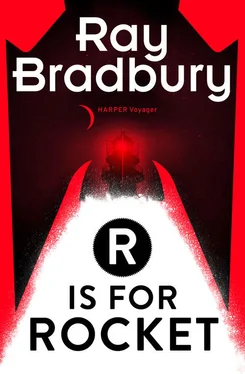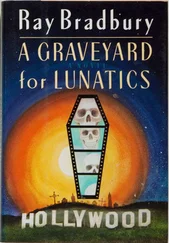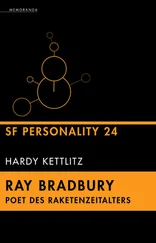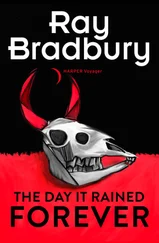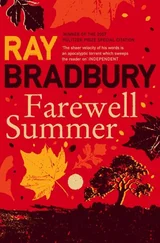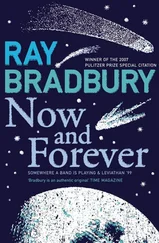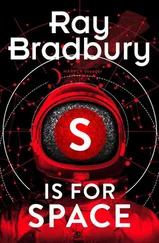Ray Bradbury - R is for Rocket
Здесь есть возможность читать онлайн «Ray Bradbury - R is for Rocket» — ознакомительный отрывок электронной книги совершенно бесплатно, а после прочтения отрывка купить полную версию. В некоторых случаях можно слушать аудио, скачать через торрент в формате fb2 и присутствует краткое содержание. Жанр: unrecognised, на английском языке. Описание произведения, (предисловие) а так же отзывы посетителей доступны на портале библиотеки ЛибКат.
- Название:R is for Rocket
- Автор:
- Жанр:
- Год:неизвестен
- ISBN:нет данных
- Рейтинг книги:5 / 5. Голосов: 1
-
Избранное:Добавить в избранное
- Отзывы:
-
Ваша оценка:
- 100
- 1
- 2
- 3
- 4
- 5
R is for Rocket: краткое содержание, описание и аннотация
Предлагаем к чтению аннотацию, описание, краткое содержание или предисловие (зависит от того, что написал сам автор книги «R is for Rocket»). Если вы не нашли необходимую информацию о книге — напишите в комментариях, мы постараемся отыскать её.
R is for Rocket — читать онлайн ознакомительный отрывок
Ниже представлен текст книги, разбитый по страницам. Система сохранения места последней прочитанной страницы, позволяет с удобством читать онлайн бесплатно книгу «R is for Rocket», без необходимости каждый раз заново искать на чём Вы остановились. Поставьте закладку, и сможете в любой момент перейти на страницу, на которой закончили чтение.
Интервал:
Закладка:
“But the sound of the Fog Horn comes and goes, comes and goes, and you stir from the muddy bottom of the Deeps, and your eyes open like the lenses of two-foot cameras and you move, slow, slow, for you have the ocean sea on your shoulders, heavy. But that Fog Horn comes through a thousand miles of water, faint and familiar, and the furnace in your belly stokes up, and you begin to rise, slow, slow. You feed yourself on great slakes of cod and minnow, on rivers of jellyfish, and you rise slow through the autumn months, through September when the fogs started, through October with more fog and the horn still calling you on, and then, late in November, after pressurizing yourself day by day, a few feet higher every hour, you are near the surface and still alive. You’ve got to go slow; if you surfaced all at once you’d explode. So it takes you all of three months to surface, and then a number of days to swim through the cold waters to the lighthouse. And there you are, out there, in the night, Johnny, the biggest damn monster in creation. And here’s the lighthouse calling to you, with a long neck like your neck sticking way up out of the water, and a body like your body, and, most important of all, a voice like your voice. Do you understand now, Johnny, do you understand?”
The Fog Horn blew.
The monster answered.
I saw it all, I knew it all—the million years of waiting alone, for someone to come back who never came back. The million years of isolation at the bottom of the sea, the insanity of time there, while the skies cleared of reptile-birds, the swamps dried on the continental lands, the sloths and sabertooths had their day and sank in tar pits, and men ran like white ants upon the hills.
The Fog Horn blew.
“Last year,” said McDunn, “that creature swam round and round, round and round, all night. Not coming too near, puzzled, I’d say. Afraid, maybe. And a bit angry after coming all this way. But the next day, unexpectedly, the fog lifted, the sun came out fresh, the sky was as blue as a painting. And the monster swam off away from the heat and the silence and didn’t come back. I suppose it’s been brooding on it for a year now, thinking it over from every which way.”
The monster was only a hundred yards off now, it and the Fog Horn crying at each other. As the lights hit them, the monster’s eyes were fire and ice, fire and ice.
“That’s life for you,” said McDunn. “Someone always waiting for someone who never comes home. Always someone loving some thing more than that thing loves them. And after a while you want to destroy whatever that thing is, so it can’t hurt you no more.”
The monster was rushing at the lighthouse.
The Fog Horn blew.
“Let’s see what happens,” said McDunn.
He switched the Fog Horn off.
The ensuing minute of silence was so intense that we could hear our hearts pounding in the glassed area of the tower, could hear the slow greased turn of the light.
The monster stopped and froze. Its great lantern eyes blinked. Its mouth gaped. It gave a sort of rumble, like a volcano. It twitched its head this way and that, as if to seek the sounds now dwindled off into the fog. It peered at the lighthouse. It rumbled again. Then its eyes caught fire. It reared up, threshed the water, and rushed at the tower, its eyes filled with angry torment.
“McDunn!” I cried. “Switch on the horn!”
McDunn fumbled with the switch. But even as he flicked it on, the monster was rearing up. I had a glimpse of its gigantic paws, fishskin glittering in webs between the fingerlike projections, clawing at the tower. The huge eye on the right side of its anguished head glittered before me like a caldron into which I might drop, screaming. The tower shook. The Fog Horn cried; the monster cried. It seized the tower and gnashed at the glass, which shattered in upon us.
McDunn seized my arm. “Downstairs!”
The tower rocked, trembled, and started to give. The Fog Horn and the monster roared. We stumbled and half fell down the stairs. “Quick!”
We reached the bottom as the tower buckled down toward us. We ducked under the stairs into the small stone cellar. There were a thousand concussions as the rocks rained down; the Fog Horn stopped abruptly. The monster crashed upon the tower. The tower fell. We knelt together, McDunn and I, holding tight, while our world exploded.
Then it was over, and there was nothing but darkness and the wash of the sea on the raw stones.
That and the other sound.
“Listen,” said McDunn quietly. “Listen.”
We waited a moment. And then I began to hear it. First a great vacuumed sucking of air, and then the lament, the bewilderment, the loneliness of the great monster, folded over and upon us, above us, so that the sickening reek of its body filled the air, a stone’s thickness away from our cellar. The monster gasped and cried. The tower was gone. The light was gone. The thing that had called to it across a million years was gone. And the monster was opening its mouth and sending out great sounds. The sounds of a Fog Horn, again and again. And ships far at sea, not finding the light, not seeing anything, but passing and hearing late that night, must’ve thought: There it is, the lonely sound, the Lonesome Bay horn. All’s well. We’ve rounded the cape.
And so it went for the rest of that night.
The sun was hot and yellow the next afternoon when the rescuers came out to dig us from our stoned-under cellar.
“It fell apart, is all,” said Mr. McDunn gravely. “We had a few bad knocks from the waves and it just crumbled.” He pinched my arm.
There was nothing to see. The ocean was calm, the sky blue. The only thing was a great algaic stink from the green matter that covered the fallen tower stones and the shore rocks. Flies buzzed about. The ocean washed empty on the shore.
The next year they built a new lighthouse, but by that time I had a job in the little town and a wife and a good small warm house that glowed yellow on autumn nights, the doors locked, the chimney puffing smoke. As for McDunn, he was master of the new lighthouse, built to his own specifications, out of steel-reinforced concrete. “Just in case,” he said.
The new lighthouse was ready in November. I drove down alone one evening late and parked my car and looked across the gray waters and listened to the new horn sounding, once, twice, three, four times a minute far out there, by itself.
The monster?
It never came back.
“It’s gone away,” said McDunn. “It’s gone back to the Deeps. It’s learned you can’t love anything too much in this world. It’s gone into the deepest Deeps to wait another million years. Ah, the poor thing! Waiting out there, and waiting out there, while man comes and goes on this pitiful little planet. Waiting and waiting.”
I sat in my car, listening. I couldn’t see the lighthouse or the light standing out in Lonesome Bay. I could only hear the Horn, the Horn, the Horn. It sounded like the monster calling.
I sat there wishing there was something I could say.
The Rocket
Many nights Fiorello Bodoni would awaken to hear the rockets sighing in the dark sky. He would tiptoe from bed, certain that his kind wife was dreaming, to let himself out into the night air. For a few moments he would be free of the smells of old food in the small house by the river. For a silent moment he would let his heart soar alone into space, following the rockets.
Now, this very night, he stood half naked in the darkness, watching the fire fountains murmuring in the air. The rockets on their long wild way to Mars and Saturn and Venus!
“Well, well, Bodoni.”
Bodoni started.
On a milk crate, by the silent river, sat an old man who also watched the rockets through the midnight hush.
Читать дальшеИнтервал:
Закладка:
Похожие книги на «R is for Rocket»
Представляем Вашему вниманию похожие книги на «R is for Rocket» списком для выбора. Мы отобрали схожую по названию и смыслу литературу в надежде предоставить читателям больше вариантов отыскать новые, интересные, ещё непрочитанные произведения.
Обсуждение, отзывы о книге «R is for Rocket» и просто собственные мнения читателей. Оставьте ваши комментарии, напишите, что Вы думаете о произведении, его смысле или главных героях. Укажите что конкретно понравилось, а что нет, и почему Вы так считаете.
